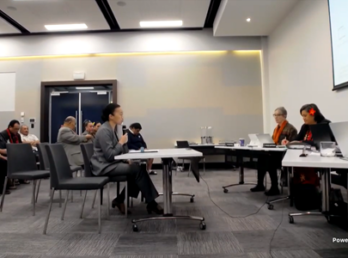Overseas Investment Reform Complete articles
Date
14 Sep 2021
Related Expertise
The Overseas Amendment Act 2021 (Amendment Act) which took effect on 5 July 2021 completes the reform of the Overseas Investment Act that began in 2018.
The main changes include:
- Replacement of the COVID-19 Emergency Notification Regime with the National Security and Public Order Notification Regime (NSPO)
- Removal of the requirement to apply for consent for lower risk transaction
- Changes to the benefit to New Zealand test which come into force no later than 12 months after Royal Assent of the Amendment Act, i.e., 24 May 2022)
- Changes to the assessment of transactions in relation to farmland some of which are scheduled to come into force on 24 November 2021
- Changes for repeat investors
- Introduction of a standalone investor test assessment
Other changes introduced by the Overseas Investment (Urgent Measures) Amendment Act 2020 such as the National Interest Test (see our previous article) continue to apply. However, the test is only mandatory if a single foreign government holds more than 25% rather than 10% as introduced under the Overseas Investment (Urgent Measures) Amendment Act 2020.
In addition, the Overseas Investment Office (OIO) has recently reviewed its fee regime with the new fees to apply to applications submitted on or after 13 September.
National Security and Public Order Notification Regime
As set out in our previous article, the Emergency Notification Regime required overseas persons to notify the Overseas Investment Office of all investments in a New Zealand entity that were not subject to OIO consent if they intended to:
- acquire more than 25% ownership or control interest,
- increase existing more than 25% ownership or control interest to more than 50% or 75%, or
- acquire 100% ownership or control interest, or
- acquire property of any value that effectively amounts to a change in control of the business.
From 7 June 2021 the Emergency Notification Regime has been replaced with the NSPO. The Emergency Notification Regime can however be reinstated in case COVID-19, another global pandemic or other national emergency requires such measures. Also, the Emergency Notification Regime still applies to any relevant transactions that were entered into before this date.
The NSPO applies to transactions entered into on or after 7 June 2021 in strategically important businesses (SIB) that would not otherwise require consent under the OIA but potentially pose a risk to national security and public order.
- In general, the NSPO applies to any transaction to acquire an interest in SIBs regardless of its value or percentage of ownership. However there are some exceptions. Investments for example that result in an investor holding less than 10% of a publicly listed entity’s shares are exempt unless the investment grants disproportionate access to, or control of, that entity (e.g. the right to appoint a board member).
- If an investor intends to increase an existing ownership or control interest in an SIB, the thresholds that trigger a NSPO to apply are 25%, 50%, 75% and 100%.
Notification is either mandatory or voluntary depending on the sector. The notification under the NSPO is mandatory if the transaction is in relation to a business or entity:
- That researches, develops, produces or maintains military or dual-use technology, or
- Is a critical direct supplier (published or unpublished) to the New Zealand Defence Force, the Government Communication Security Bureau, or the New Zealand Security Intelligence Services.
Notification is voluntary if a transaction if the target business or entity is:
- involved in airports
- involved in ports
- involved in electricity generation, distribution, metering, or aggregation
- involved in drinking water, wastewater, or stormwater infrastructure
- involved in telecommunications infrastructure or services
- a financial institution or is involved in financial market infrastructure,
- a media business with significant impact
- develops, produces, maintains, or otherwise has access to sensitive information.
The advantage of a voluntary notification is that the investor will obtain safe harbour from later scrutiny (provided the OIO finds that the investment does not pose significant risks to New Zealanders). If the OIO later decides to assess the transaction which had not previously been notified, the Government can block the transaction, impose conditions or even order disposal of the assets.
Removal of the requirement to apply for consent for lower risk transaction
The new Act has made various changes to remove the requirement for consent for lower risk transactions. Consent is no longer required for example for:
- leases of non-residential land of 10 years or more instead of 3 years where the land is sensitive. However, for residential land the relevant lease term remains 3 years.
- Increasing interests in sensitive land that do not breach certain thresholds will no longer require consent. The relevant thresholds are 25%, 50%, 75% and 100%.
- Certain transactions involving New Zealand-listed entities.
Benefit to New Zealand Test
The Amendment Act further made changes to the benefit to New Zealand test which applies to a consent for an investment in sensitive land where applicants are required to show that the investment is likely to result in a benefit to New Zealand. Under the current regime, the test includes 21 specific factors to be considered. The new regime applies 7 broad factors and changed the test from a “with or without analysis” to a “before and after” comparison; i.e. a comparison of the likely result of the investment against the situation existing at the time the transaction is entered into or the time the application is made. This particular amendment is expected to provide a clearer and more straightforward analysis and is to come into force no later than one year after Royal Assent which occurred 24 May 2021.
Changes to the Assessment of Farmland
Where an overseas investment is in farmland or in land which includes farmland, the new regime requires the relevant Minister to give high relative importance to economic benefits and, in particular, the creation or retention of jobs, introduction of technology or business skills, increased export receipts, and increased processing of primary products;
However, the relevant Ministers are not required to apply this more stringent test in certain circumstances including where the Minister is satisfied that the particular land is not productive for farming, and the land is likely to be used for commercial, industrial, or large residential developments.
Currently, farm sales must be advertised before the disposal/acquisition of the farmland takes place whereas the new legislation requires farm land to be advertised for sale in New Zealand before entering into an agreement to sell the land. The new advertising requirements come into force on 24 November 2021.
Changes for repeat investors
Investors who have passed the new investor test that was introduced in March 2021 are no longer required to satisfy the investor test each time an application for consent is submitted. This however only applies if the Minister is satisfied there are no substantial changes to the investor test factors applied since the last time consent was obtained.
Standalone assessment of the investor test
Overseas investors may now apply for a standalone assessment of their suitability before they make an investment application.
When an investor has met the standalone investor test, then (absent material changes) the investor will be deemed to have met the investor test for future applications.
Application Fees
Following a review and consultation process the OIO has published its new fee structure which will apply to applications submitted on or after 13 September. Instead of a flat fee, fees will be charged for the different phases of the application process (initial assessment, substantive assessment, and monitoring and compliance). The main change is that higher fees will be applied for complex applications under the benefit to New Zealand pathway.
Subscribe
Get insights sent direct to your email.





















